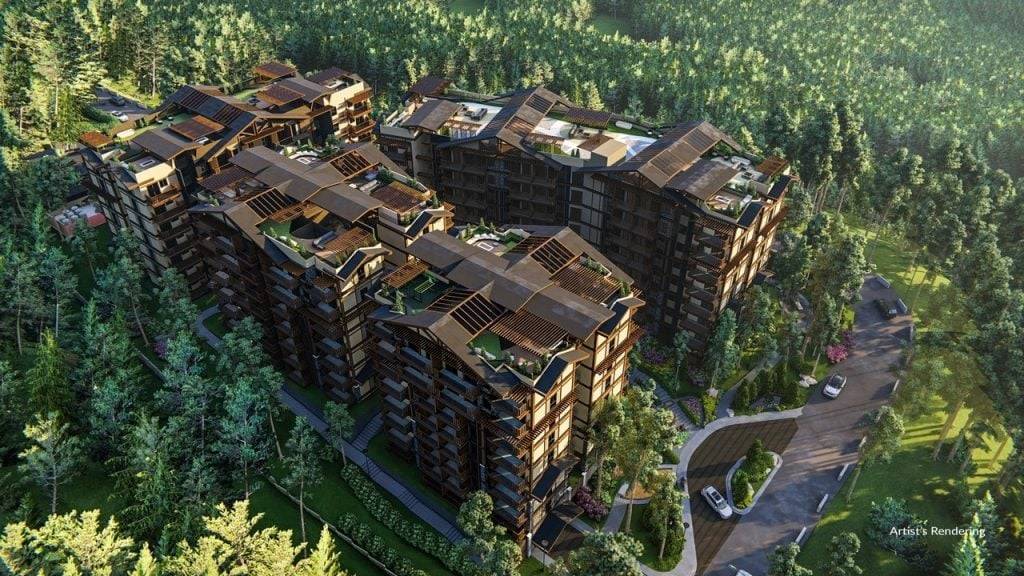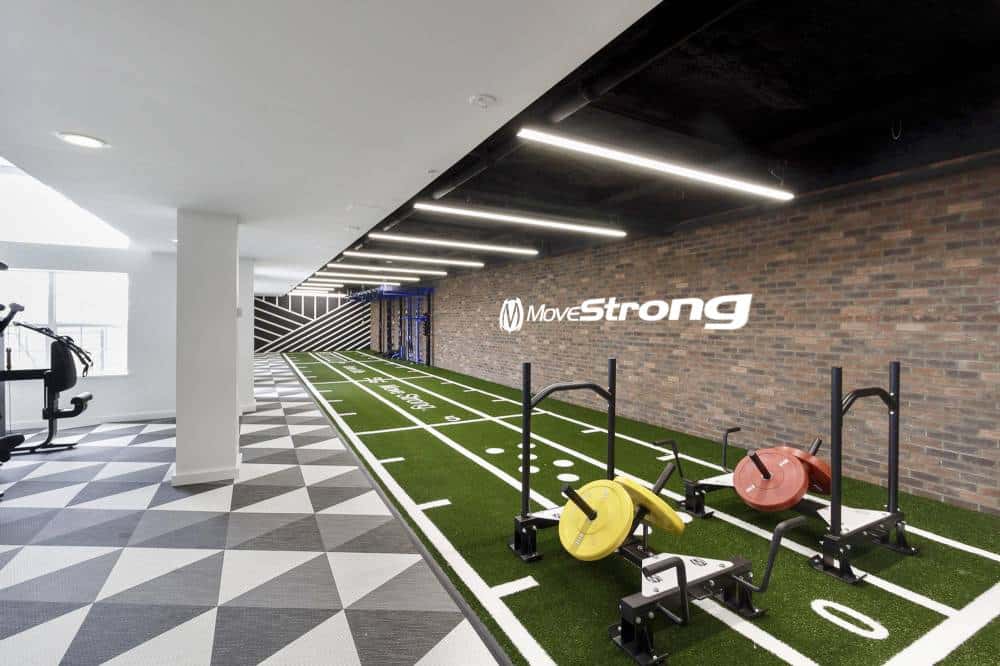
The necessity for wellness-centric condominiums and edifices becomes increasingly pivotal in enhancing the standard of living.
Vertical living, particularly in metropolitan regions, is inclining towards incorporating wellness amenities into residential spaces.
As urban areas experience escalating population density and inhabitants seek respite from urban-related stressors, the necessity for wellness-centric condominiums and edifices becomes increasingly pivotal in enhancing the standard of living. This progressive approach aims to revolutionize high rise living by emphasizing mental, physical, and environmental well-being within urban settings.
Prioritizing wellness-centered amenities

Designers emphasize that health-focused amenities have a significant impact on residents’ physical health. (https://www.movestrongfit.com)
Designers emphasize that health-focused amenities have a significant, albeit subtle, impact on residents’ physical health.
For instance, the presence of indoor gyms, meditation rooms, and yoga studios encourages physical activity. Some buildings even go a step further, incorporating saunas, steam rooms, and hydrotherapy pools to promote relaxation and recovery, ensuring residents’ physical well-being.
A study on wellness buildings underscores the importance of integrating subtle design features, such as visible staircases, which play a significant role in promoting physical movement. The strategic design of spaces, encouraging healthier choices like taking the stairs instead of elevators, has shown positive impacts on cardiovascular health.
Designing for mental and social well-being
Urban developments increasingly adopt elements that encourage relaxation and foster a sense of community.
For example, green spaces like rooftop gardens or indoor serenity gardens with water features help to counteract the psychological impact of high-density living by providing calming environments. These spaces promote mindfulness and reduce stress, allowing residents to experience a sense of escape without leaving the building.
Community is a cornerstone of mental well-being, and well-designed common areas play a crucial role in reducing social isolation. Condominiums are now integrating multi-purpose lounges, coworking spaces, and children’s play areas that foster social interaction among residents.
This focus on creating connections within vertical communities helps alleviate anxiety and instill a sense of belonging, making residents feel part of a larger, supportive community.
Air, light as essential wellness features
Natural light also profoundly affects the human disposition, particularly sleep cycles and mood regulation
Condominiums with advanced ventilation systems and regular indoor air quality checks provide fresher air and are free of pollutants, enhancing respiratory health for occupants.
Natural light also profoundly affects the human disposition, particularly sleep cycles and mood regulation. Maximizing sunlight through large windows, strategically placing units, and using reflective materials can improve natural lighting within units.
These elements reduce energy consumption, positively impact mental health, and maintain circadian rhythms for residents, improving bedtime quality and overall well-being.
Green spaces promote mindfulness and reduce stress, allowing residents to experience a sense of escape without leaving the building. (HTTPS://ARCHOVAVISUALS.COM)
Sound control for serenity
Noise pollution is a prevalent issue in urban settings, particularly in high rise buildings.
However, developers who prioritize wellness ensure that sound control measures are an integral part of the design. By using soundproofing materials in walls and floors, along with quieter HVAC systems, they create peaceful sanctuaries within the apartments.
This attention to acoustic comfort enhances relaxation and reduces disturbances, ensuring residents enjoy a serene environment.
The author (at www.ianfulgar.com) is a leading architect with an impressive portfolio of local and international clients, his team elevates hotels and resorts, condominiums, residences, and commercial and mixed-use township development projects. His innovative, cutting-edge design and business solutions have garnered industry recognition, making him the go-to expert for clients seeking to transform their real estate ventures

